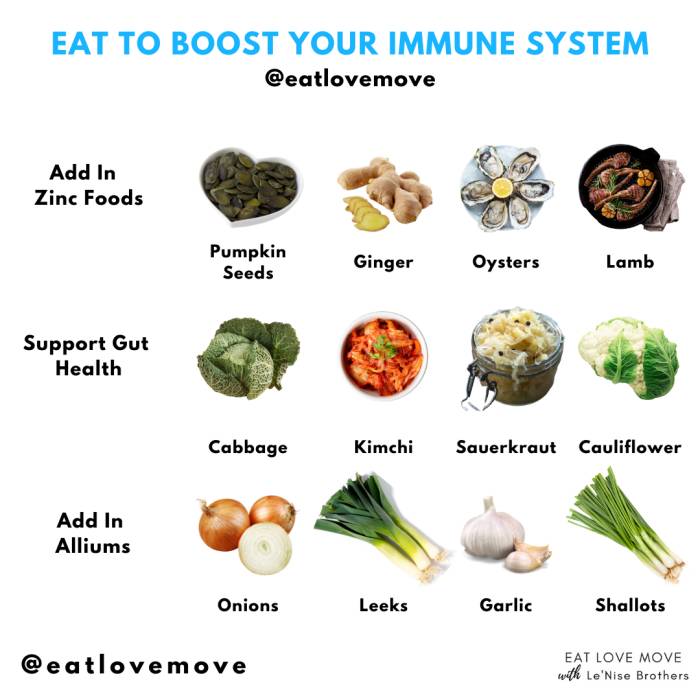7 Foods That Naturally Boost Your Immune System
The immune system is your body’s shield, tirelessly working to fend off illnesses and infections. While genetics and overall lifestyle play significant roles in your immunity, the foods you eat are equally impactful. Your daily diet provides the essential nutrients needed to fuel immune cells, reduce inflammation, and support overall defense mechanisms. Incorporating nutrient-rich foods into your routine isn’t just about warding off the occasional cold—it’s about strengthening your body’s ability to stay resilient. This article highlights seven powerful foods that can naturally boost your immune system and improve overall health.
1. Citrus Fruits
Citrus fruits have long been celebrated for their immune-boosting properties, primarily due to their high vitamin C content. Vitamin C stimulates the production of white blood cells, which are crucial for fighting infections. These fruits are also loaded with antioxidants, which protect cells from damage caused by free radicals.
Why They Help:
Beyond vitamin C, citrus fruits like oranges, lemons, and grapefruits contain flavonoids such as hesperidin, which reduce inflammation and strengthen blood vessels.
How to Use:
Add slices of lemon to your water, use lime juice in salad dressings, or snack on an orange for a midday immune boost.
Interesting Fact:
Regular intake of vitamin C can shorten the duration of colds by up to 8% in adults, according to studies published in Nutrients.
2. Yogurt
Rich in probiotics, yogurt is a powerful ally for your gut—and by extension, your immune system. The majority of your immune cells reside in your gut, and maintaining a healthy gut microbiota is essential for overall immunity.
Why It Works:
Probiotics found in yogurt improve gut health, enhance nutrient absorption, and strengthen the intestinal barrier, preventing harmful bacteria from entering the bloodstream.
Best Choices:
Choose unsweetened or Greek yogurt with "live and active cultures" on the label to ensure you’re getting the most benefits.
How to Use:
Enjoy yogurt with fresh berries for breakfast, blend it into smoothies, or use it as a base for dips.
Tip:
Pair yogurt with honey and nuts for an immunity-boosting dessert that also satisfies your sweet tooth.
3. Spinach
Spinach is a nutritional powerhouse packed with immune-boosting nutrients such as vitamin C, beta-carotene, and iron. It also contains antioxidants that combat inflammation and enhance overall cell function.
Why It Helps:
Beta-carotene, which your body converts into vitamin A, supports the production of infection-fighting cells, while iron promotes oxygen transport, critical for energy and immune function.
How to Use:
Add spinach to soups, sauté it with garlic, or blend it into green smoothies.
Did You Know? Just one cup of raw spinach provides 56% of your daily vitamin A needs, as reported by the Journal of Clinical Nutrition.
4. Almonds
Almonds are a convenient snack and a rich source of vitamin E, an essential antioxidant that boosts the activity of T-cells, which play a central role in immune defense. They also provide magnesium and healthy fats, which are critical for overall health.
Why They Matter:
Vitamin E helps neutralize harmful free radicals, protecting immune cells from damage.
How to Use:
Sprinkle almonds on your morning cereal, toss them into salads, or enjoy a handful as a midday snack.
Pro Tip:
Opt for almonds with their skins intact—they contain more flavonoids, which enhance immune health.
5. Mushrooms
Mushrooms are among the few natural food sources of vitamin D, a key nutrient for immune function. They also contain selenium and polysaccharides, compounds that support white blood cell activity.
Why They’re Powerful:
Vitamin D regulates immune responses, ensuring the body effectively combats pathogens without overreacting, which can cause inflammation.
Best Varieties:
Shiitake, maitake, and portobello mushrooms are particularly rich in immune-supportive nutrients.
How to Use:
Add mushrooms to omelets, stir-fries, or soups, or grill them as a side dish.
Fact:
Exposing mushrooms to sunlight before cooking boosts their vitamin D levels, according to research in The Journal of Nutrition.
6. Bell Peppers
These colorful vegetables are vitamin C powerhouses, containing nearly three times more vitamin C per gram than oranges. They’re also rich in beta-carotene, which supports skin health, the body’s first line of defense against pathogens.
Why They’re Unique:
Vitamin C in bell peppers strengthens the skin’s barrier function and boosts white blood cell activity, while beta-carotene promotes eye and respiratory health.
How to Use:
Slice raw bell peppers for a crunchy snack, roast them for added sweetness, or include them in stir-fries and fajitas.
Bonus: Red bell peppers have the highest concentration of vitamin C among their green and yellow counterparts.
7. Sunflower Seeds
These tiny seeds are a nutritional goldmine, packed with selenium, zinc, magnesium, and vitamin E—all essential for robust immune function.
Why They Shine:
Selenium enhances white blood cell activity, while zinc supports cell repair and growth. Magnesium and vitamin E reduce inflammation and protect immune cells from oxidative stress.
How to Use:
Sprinkle sunflower seeds on yogurt or oatmeal, toss them into salads, or enjoy them roasted as a snack.
Tip: Choose unsalted seeds for maximum health benefits and minimal sodium intake.
Your diet plays a crucial role in fortifying your immune system. Foods like citrus fruits, yogurt, spinach, almonds, mushrooms, bell peppers, and sunflower seeds provide the essential nutrients needed to keep illnesses at bay. By incorporating these immune-boosting ingredients into your meals, you’re not only safeguarding your health but also enhancing your body’s resilience against infections.
Start small—swap snacks for healthier options, add nutrient-rich toppings to your meals, and explore creative recipes. A stronger immune system is just a few delicious bites away!




No comments yet
Be the first to share your thoughts!